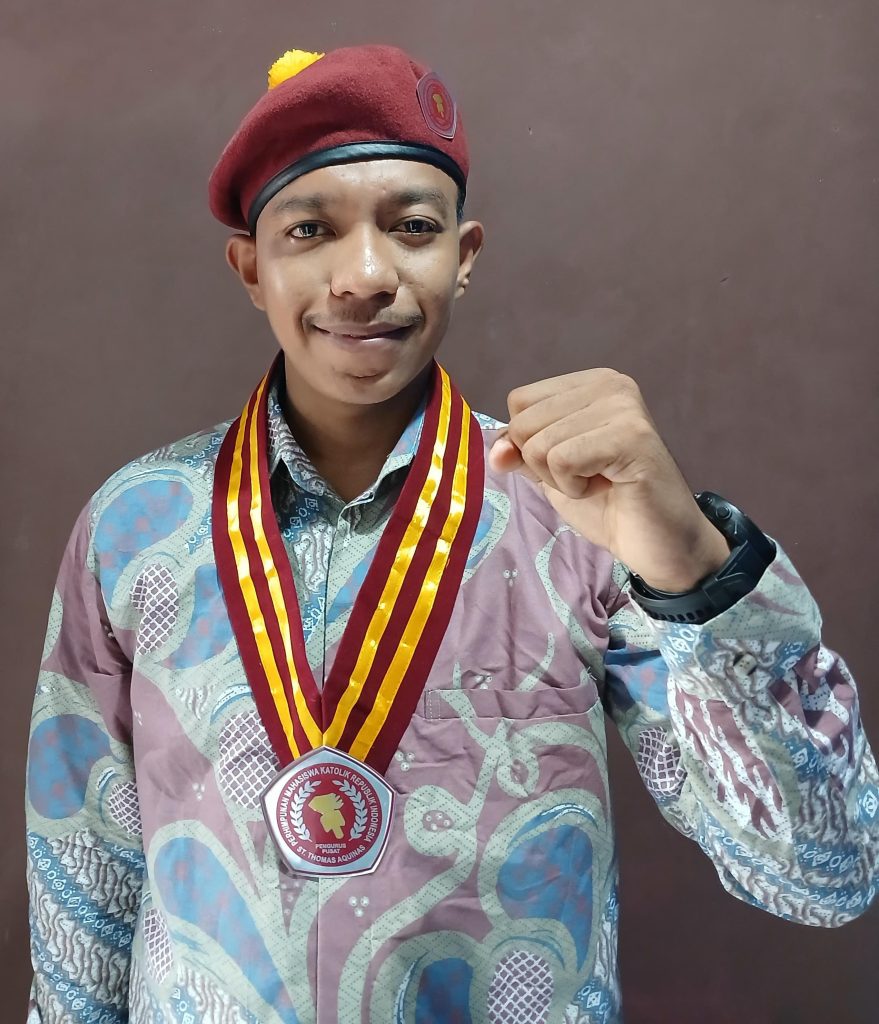Theresa Wu, UCCSA Taiwan shared her insight after joining IMCS Empowerment Summit and International Council, 12-17 September 2024

“Attending this program has been an enlightening experience. I learned about leadership, the mission of the movement, and the significant achievements of many countries. I also discovered many unreported injustices that need our attention. Understanding IMCS’s mission and its history was eye-opening, and I now clearly see the connection between our student movement and the Association. I am eager to bring these insights back to Taiwan and share them with UCCSA”
Ranjith Raj, AICUF shared his insight after joining Pax Catholica Forum, 19 September 2024

“Through this forum, I realized that synodality—walking together with young people—is not yet fully rooted. There’s a need to educate and raise awareness among youth about their role in the Church’s mission. This forum has deepened my understanding and motivated me to engage others in this journey. I leave with a renewed commitment to promote peace, justice, and care for creation, inspired by the Rome Appeal for Peace and the vision of a more inclusive, synodal Church”
Eternal Peace Call for the Middle East: PMKRI Advocates for Dialogue Amid Global Crisis
The Central Board of the Catholic Students Association of the Republic of Indonesia (PP PMKRI) for the 2024-2026 term.

Ferdinandus Wali Ate, President of Foreign Affairs for the Central Board of the Catholic Students Association of the Republic of Indonesia (PP PMKRI) for the 2024-2026 term, has called for eternal peace between Palestine, Israel, and Lebanon amid the prolonged conflict that has caused a deep humanitarian crisis. According to Ferdinandus, the ongoing violence in the Middle East must be immediately halted to achieve economic stability, security, and a better future for all parties involved.
“We urge Palestine, Israel, and Lebanon to cease all forms of violence and to initiate serious diplomatic efforts to resolve this conflict,” Ferdinandus emphasized. He stressed that true peace can only be achieved through open dialogue and a strong commitment from all parties to seek a fair and sustainable solution.

The Importance of Remaining Unprovoked
Ferdinandus also reminded the Indonesian public not to be easily provoked by dynamics outside the Gaza conflict. He highlighted that tensions are now not only confined to Gaza but are beginning to heat up in various other regions. “We must remain calm and wise in responding to international developments. External provocations should not exacerbate an already very complex and dynamic situation,” he said.
Evaluation of Diplomatic Efforts
According to Ferdinandus, diplomatic relations between countries in the Middle East are still suboptimal in creating peace. He believes that military actions only worsen the suffering of civilians and prolong the conflict. Therefore, he called for more productive diplomatic initiatives and encouraged the involvement of countries that can act as mediators, focusing on long-term solutions and sustainable peace.
Indonesia’s Role and the Mandate of the 1945 Constitution
Ferdinandus also stressed the importance of Indonesia’s active involvement in peace efforts, in accordance with the mandate of the 1945 Constitution, which requires the country to fight for the independence and human rights of every nation. “Indonesia has a moral responsibility to promote a peaceful solution in Palestine and Israel. With a comprehensive approach, including considering history, sociology, culture, and international law, we can play a wiser role in finding a way out of this conflict,” he explained.
Protection of Human Rights and Civilians
Ferdinandus emphasized that Palestine, Israel, and Lebanon have a significant responsibility to protect civilians from ongoing violence. According to him, the steps toward true peace must include respect for human rights and the cessation of military actions that disrupt regional stability.
In conclusion, Ferdinandus called on the international community and all parties involved to strengthen constructive dialogue, fight for justice, and maintain stability in the Middle East. “Only with a collective commitment can we create a more peaceful future for all parties involved,” he concluded.

Share This:

IMCS Asia Pacific
The International Movement of Catholic Students (IMCS) Asia Pacific is a dynamic regional organization dedicated to empowering young Catholics to actively engage in social justice, human rights, and sustainable development. Through education, advocacy, and collaboration, IMCS aims to nurture leadership, build solidarity, and inspire students to be agents of change within their communities and beyond.
@2020 - IMCS AP - All Rights Reserved.

Leave a Reply